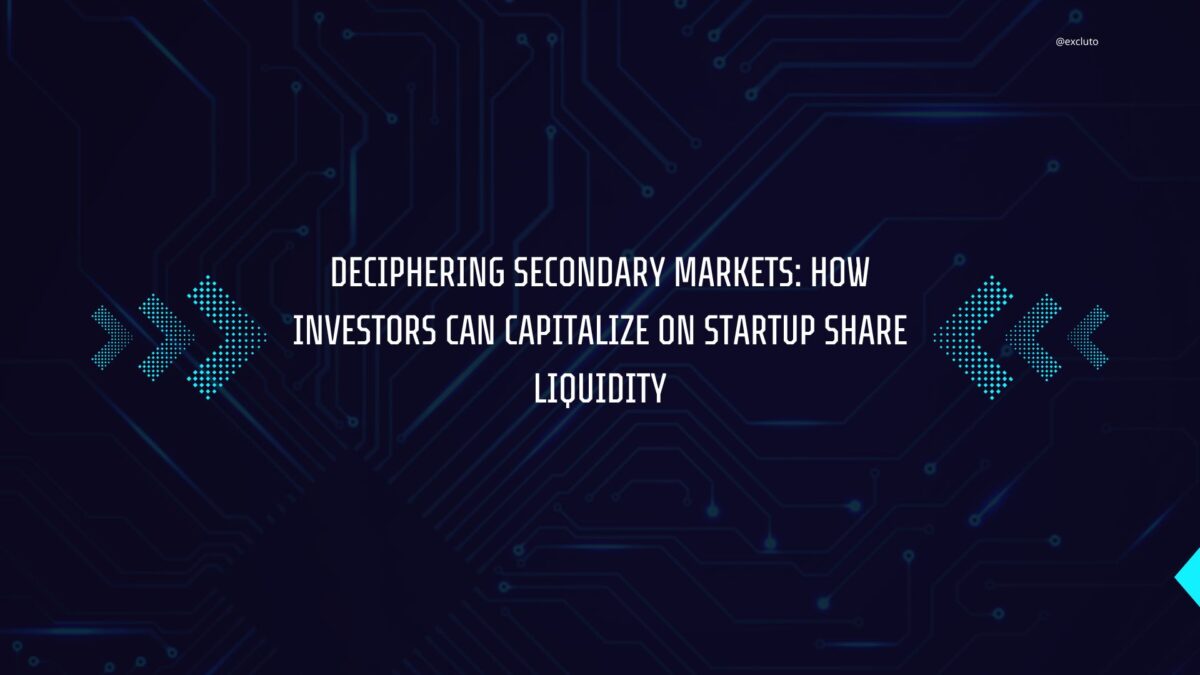Investing in startups has long been considered a high-risk, high-reward game. However, one of the biggest hurdles for investors is the extended period of illiquidity. Traditionally, early-stage investors have had to wait for a major event like an IPO or acquisition to cash out their shares. Enter the secondary market—a game changer that allows investors to unlock liquidity well before these events.
But what exactly is the secondary market, and how can investors take advantage of it?
Understanding Secondary Markets
A secondary market is where existing shareholders—such as early investors, employees, and venture capitalists—can sell their shares in a private company to other investors. Unlike primary markets, where the company itself issues new shares to raise capital, secondary markets involve the trading of already issued shares.
The rise of secondary markets has been fueled by the increasing number of startups staying private longer.
According to PitchBook, the median time for a startup to go public increased to nearly 8 years in 2021, compared to just 3 years in 2000. This extended timeline creates a pressing need for liquidity among early investors and employees, which secondary markets provide.
The Appeal of Liquidity for Investors
Secondary markets offer an opportunity for investors to enter high-growth startups without waiting for a public listing. This not only provides flexibility but also allows investors to buy shares at potentially lower valuations before a company goes public or reaches unicorn status.
Moreover, it enables early-stage investors to de-risk their portfolios by selling a portion of their holdings, ensuring that they aren’t overly reliant on one company’s eventual success.
For example, shares of well-known private companies like SpaceX, Stripe, and Instacart have been traded on secondary markets, giving investors a chance to invest in, or liquidate their positions in, these high-profile startups.
Growth of the Secondary Market
The secondary market for private shares has grown significantly in recent years.
A 2021 report by Forge, a leading platform for secondary market trading, indicated that over $30 billion worth of private shares were traded in the U.S. alone that year.
This market is expected to grow as more institutional investors and high-net-worth individuals look for alternative investment opportunities beyond public markets.
Additionally, liquidity through secondary markets is becoming more important for startup employees.
In 2020, Carta reported that 83% of private companies offered some form of liquidity through secondary sales or tender offers to retain talent and keep employees motivated.
Key Considerations for Investors
While secondary markets offer liquidity and access to high-growth companies, they also come with risks. Valuations in secondary markets can fluctuate significantly, often driven by investor sentiment and limited availability of shares.
Furthermore, conducting thorough due diligence is essential. Unlike public markets, private companies are not required to disclose financial statements, so information asymmetry can pose a challenge.
Investors need to evaluate the quality of the company’s financials, growth potential, and the terms of the share sale. It’s also crucial to understand lock-up periods and any restrictions on transferring shares.
How Excluto Can Help
At Excluto, we simplify the discovery and due diligence process for investors. Our invite-only platform lists top-tier Alternative Investment Funds, offering access to a curated selection of funds that help build a well-diversified portfolio.

